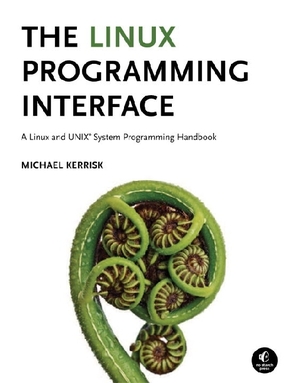
The Linux Programming Interface - A Linux and UNIX System Programming Handbook
| Verlag | No Starch Press |
| Auflage | 2016 |
| Seiten | 1552 |
| Format | 18,1 x 24,1 x 5,9 cm |
| Gewicht | 2314 g |
| Artikeltyp | Englisches Buch |
| ISBN-10 | 1593272200 |
| EAN | 9781593272203 |
| Bestell-Nr | 59327220UA |
A guide to writing system programs for Linux and Unix, with unparalleled depth and breadth of coverage of the system programming interfaces
- Destined to become the essential reference for Linux and Unix system programming; fills a previously empty space in the market
- Author well-known in this space as the maintainer of the man-pages project and participant in the Linux developer community
The Linux Programming Interface (TLPI) is the definitive guide to the Linux and UNIX programming interface the interface employed by nearly every application that runs on a Linux or UNIX system.
In this authoritative work, Linux programming expert Michael Kerrisk provides detailed descriptions of the system calls and library functions that you need in order to master the craft of system programming, and accompanies his explanations with clear, complete example programs.
You'll find descriptions of over 500 system calls and library functions, and more than 200 example programs, 88 tables, and 115 diagrams. You'll learn how to:
Read and write files efficiently
Use signals, clocks, and timers
Create processes and execute programs
Write secure programs
Write multithreaded programs using POSIX threads
Build and use shared libraries
Perform interprocess communication using pipes, message queues, shared memory, and semaphores
Write network ap plications with the sockets API
While The Linux Programming Interface covers a wealth of Linux-specific features, including epoll, inotify, and the /proc file system, its emphasis on UNIX standards (POSIX.1-2001/SUSv3 and POSIX.1-2008/SUSv4) makes it equally valuable to programmers working on other UNIX platforms.
The Linux Programming Interface is the most comprehensive single-volume work on the Linux and UNIX programming interface, and a book that's destined to become a new classic.
